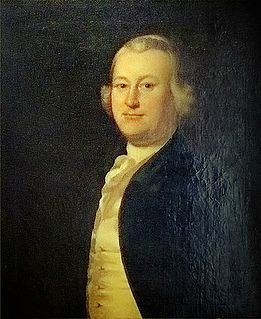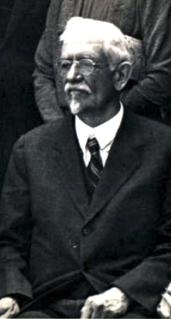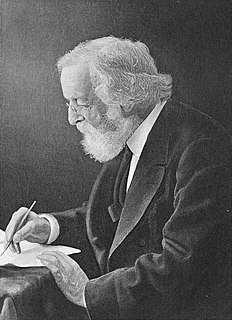A Quote by Herbert Spencer
An argument fatal to the communist theory, is suggested by the fact, that a desire for property is one of the elements of our nature.
Related Quotes
Government is founded not on force, as was the theory of Hobbes; nor on compact, as was the theory of Locke and of the revolution of 1688; nor on property, as was the assertion of Harrington. It springs from the necessities of our nature, and has an everlasting foundation in the unchangeable will of God.
Nothing is more human than for man to desire naturally things impossible to his nature. It is, indeed, the property of a nature which is not closed up in matter like the nature of physical things, but which is intellectual or infinitized by the spirit. It is the property of a metaphysical nature. Such desires reach for the infinite, because the intellect thirsts for being and being is infinite.
In these researches I followed the principles of the experimental method that we have established, i.e., that, in presence of a well-noted, new fact which contradicts a theory, instead of keeping the theory and abandoning the fact, I should keep and study the fact, and I hastened to give up the theory.
Liberalism makes this mistake in regard to private property and Marxism makes it in regard to socialized property... The Marxist illusion is partly derived from a romantic conception of human nature... It assumes that the socialization of property will eliminate human egotism... The development of a managerial class in Russia, combing economic with political power, is an historic refutation of the Marxist theory.
In fact it is remarkable that this theory has had progressively greater influence on the spirit of researchers, following a series of discoveries in different scholarly disciplines. The convergence in the results of these independent studies—which was neither planned nor sought—constitutes in itself a significant argument in favor of the theory.
The supposed astronomical proofs of the theory [of relativity], as cited and claimed by Einstein, do not exist. He is a confusionist. The Einstein theory is a fallacy. The theory that ether does not exist, and that gravity is not a force but a property of space can only be described as a crazy vagary, a disgrace to our age.
If any human being earnestly desire to push on to new discoveries instead of just retaining and using the old; to win victories over Nature as a worker rather than over hostile critics as a disputant; to attain, in fact, clear and demonstrative knowlegde instead of attractive and probable theory; we invite him as a true son of Science to join our ranks.
We are in fact convinced that if we are ever to have pure knowledge of anything, we must get rid of the body and contemplate things by themselves with the soul by itself. It seems, to judge from the argument, that the wisdom which we desire and upon which we profess to have set our hearts will be attainable only when we are dead and not in our lifetime.
The indispensability argument says (roughly) that if you have ample reason to accept an empirical scientific theory that makes indispensable use of mathematics, and that theory entails that numbers exist, then you have ample reason to accept that numbers exist. The argument affirms the antecedent of this conditional, and concludes that you have ample reason to believe that numbers exist. What is striking about this argument is that it seems to show that the empirical reasons that suffice for accepting a scientific theory also suffice for accepting a metaphysical claim.
It is rather the nature of America - our freewheeling, outspoken, prosperous, liberty-loving citizens extend equality to women, homosexuals, minorities, and almost anyone who comes to our shores, and thereby create desire and with it shame for that desire. Indeed, it is worse still than that: Precisely because we worry publicly that we are insensitive, our enemies scoff privately that we in fact are too sensitive - what we think is liberality and magnanimity they see as license and decadence. If we don't have confidence in who we are, why should they?







































